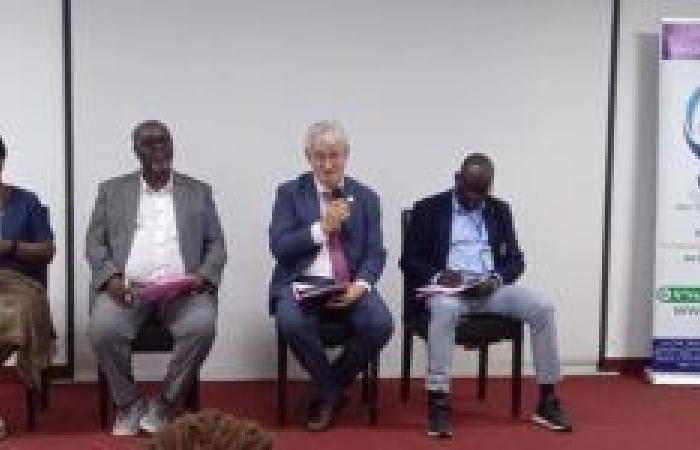Abidjan, November 30, 2024 (AIP) – The UNAIDS country director in Côte d’Ivoire, Henk Van Renterghem, noted among other things on Friday November 29, 2024 at the headquarters of the National Human Rights Council (CNDH) in Abidjan, that less more people will contract HIV in 2023 than at any time since the late 1980s.
Mr. Van Renterghem, who was speaking at the press conference to launch the UNAIDS report on World AIDS Day 2024, on the theme, “Let’s follow the path of rights to end AIDS”, gave the State of the epidemic in the world and in Ivory Coast in 2023.
It said that with nearly 31 million people receiving life-saving antiretroviral treatment in 2023, the number of AIDS-related deaths is at its lowest level since the peak in 2004. “Despite these successes, the world is not on track to end AIDS as a public health threat by 2030,” he revealed.
According to him, in 2023, 9,300,000 people living with HIV were still not receiving antiretroviral therapy and 1,300,000 people had newly contracted HIV. He said coverage of prevention services among populations most at risk of HIV infection is far too low, typically below 50 percent.
The UNAIDS director noted that in at least 28 countries, the number of new HIV infections is increasing and a growing lack of resources is jeopardizing the significant progress made to date in the global HIV response.
“It is clear that we have not yet finished with AIDS in Côte d’Ivoire. We have made a lot of progress, but that does not mean that it is no longer a major public health problem. But that means our approaches need to be much more targeted,” said Van Renterghem.
However, the director of UNAIDS, as a response to the disease, indicated that the projection is to, “End AIDS as a public health threat by 2030, by reducing new infections, deaths and HIV-related discrimination/stigma.”
The vice-president of the CNDH, Marie-Paule Kodjo noted that, according to figures from the Ministry of Health, Public Hygiene and Universal Health Coverage, the prevalence of the disease has fallen considerably, from 4, 7% in 2010 to 1.82% in 2023.
For her, following the path of rights to end AIDS requires an increased fight against discrimination and the elimination of inequalities, strengthening access to health care for all, protecting everyone’s health, protecting the rights of all. , vulnerable people, key populations, including sex workers, men who have sex with men, drug users and prison populations.
“The world cannot end AIDS without a human rights-based approach,” concluded the UNAIDS country director.
(AIP)
no/thus






